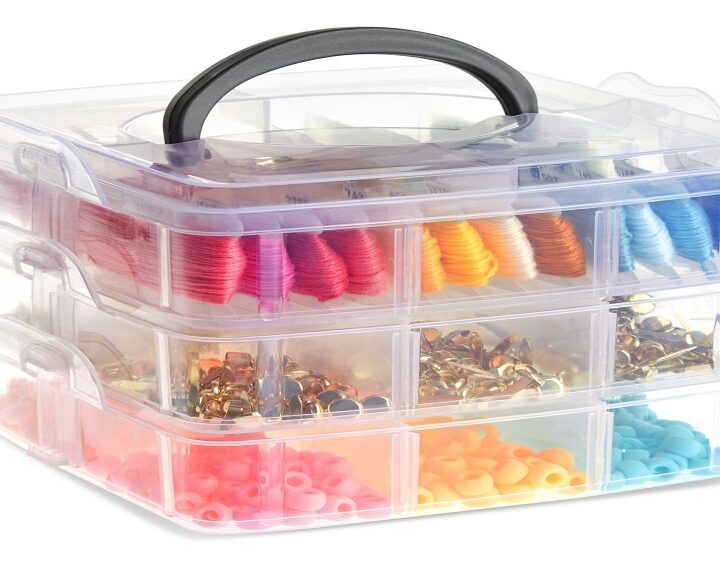At a Glance:
- Use the engineering plastics that have very high tensile strength, impact resistance, and wear properties: Acetal for gears and UHMWPE for high-friction parts.
- Ensure materials can withstand bad weather conditions, UV exposure, and temperature fluctuations; polycarbonate is best for greenhouses, while HDPE works best for outdoor uses.
- Choose plastics that can withstand fertilisers and humidity. PTFE and PET work really well as chemically resistant plastics, while Acetal does great in Humid conditions.
- PET and HDPE are selected as recyclable and inexpensive options to find a balance between performance, cost, and sustainability.
Engineering plastics have emerged as a huge factor for various agricultural applications, from machinery components to irrigation systems.
However, unlike other industries, selecting engineering plastics for the agriculture industry requires a unique balance of durability, chemical resistance, environmental sustainability, cost-effectiveness, and regulatory compliance.
With hundreds of businesses selling engineering plastics, the decision to select appropriate plastics from a reliable supplier can seem a bit overwhelming.
So, in this article, we will look at the key factors you can consider when choosing engineering plastics for agricultural applications.
Mechanical Strength
Agricultural machinery often faces severe loads and wear-tear conditions at operation sites. Hence, investment in something that cannot really hold the pressure may only result in huge losses.
That is why the selected engineering plastics should possess high mechanical properties such as:
- High tensile strength
- Impact resistance
- Wear resistance
For highly precise mechanical components that include gears or bearings, a material like Acetal (POM) will offer great strength with very good dimensional stability. Meanwhile, parts made from Ultra-High Molecular Weight Polyethylene (UHMWPE) also exhibit superior impact resistance with very good wearing properties, which could be used on conveyor systems or chute liners in agricultural operations.
Weather and UV Resistance
Outdoor plastics need to be UV-stable and weathering-resistant to prevent long-term degradation. When selecting the engineering plastic, make sure that your product can resist strong winds, UV radiation, rain, hail, and other harsh conditions.
For example, you could opt for Polycarbonate (PC) for applications that require transparency and excellent impact resistance, such as greenhouse panels and protective covers. Similarly ,HDPE (High-Density Polyethylene) is highly UV-resistant and generally used in pipes for irrigation purposes and in the storage of material outdoors.
Chemical Resistance
Most agriculture uses fertilisers, pesticides, and cleaning agents throughout the year. Since these chemicals can be highly corrosive, the engineering plastics used in agriculture need to be able to withstand exposure to them without losing their structural integrity.
PTFE (Polytetrafluoroethylene) is excellently resistant to a wide variety of chemicals; hence, it is extensively used as a sealing component and in applications related to chemical storage. Likewise, PET or polyethylene terephthalate also possesses superior chemical resistance and is useful in food packaging and storage containers.
Moisture Absorption
Agricultural operations often involve high levels of moisture, either in irrigation systems or water reservoirs. Such high moisture absorption can lead to dimensional instability and mechanical degradation. Therefore, the plastic material used in irrigation systems, tanks, and other related applications where moisture prevails must be low-moisture absorbing.
For instance, Cast Nylon tends to absorb moisture, which is why it is better suited for dry applications than for wet applications.
But, Acetaland PET can be excellent choices for moisture-resistant components, such as valves and fittings.
Temperature Resistance
Farming processes are usually exposed to extremely high or low temperatures, depending on the location. When purchasing engineering plastic, check whether it can function effectively in both temperatures or not.
High-performance plastics like PEEK (Polyether Ether Ketone) are suitable for extreme temperature conditions and ideal for high-heat engine components.
Food Safety Compliance
In agricultural applications involving foodstuffs, such as containers or wrappings, the engineering plastic must be safe for use in contact with food. Materials that fulfil FDA (Food and Drug Administration) compliance or equivalent food safety standards ensure that plastics do not leach harmful substances into foodstuffs.
Cost-Effectiveness
Although high-performance plastics have excellent properties, they tend to be more expensive. However, this does not mean that you must seek the cheapest option available on the market.
Choose quality over price as it will save a huge amount in the long run, but try to remain within the budget, too. If you want versatile and cost-effective solutions, HDPE and Cast Nylon offer a good balance of performance and affordability.
Sustainability
With a rising emphasis on environmental sustainability, decisions to employ recyclable or bio-based engineering plastics will go a long way toward environmentally friendly agricultural practices.
Thus, whenever you need to select an engineering plastic for farming needs, you should make sure that it is sustainable. You could opt for HDPE, which is comparatively friendly to the environment.
Ease of Fabrication
Plastics that are easily machinable, mouldable, or otherwise fabricatable reduce production costs and times, which is especially important for custom agricultural machinery components.
Materials like HDPE (High-Density Polyethylene) and UHMWPE (Ultra-High Molecular Weight Polyethylene) offer excellent ease of processing and manufacturability. Their availability in rod and sheet forms makes them popular choices for custom agricultural applications.
Abrasion Resistance
Bearings, conveyor systems, along with other applications that are subject to high friction, require plastics which exhibit excellent abrasion resistance to extend their service lives.
UHMWPE provides outstanding abrasion-resistant properties, which makes it an ideal choice for wear strips, guide rails, and other highly frictional parts.
Finding the perfect engineering plastic for agriculture will require an adequate understanding of operation performance. You need to consider the factors like mechanical strength, chemical resistance, cost-efficiency, sustainability, and many more.






